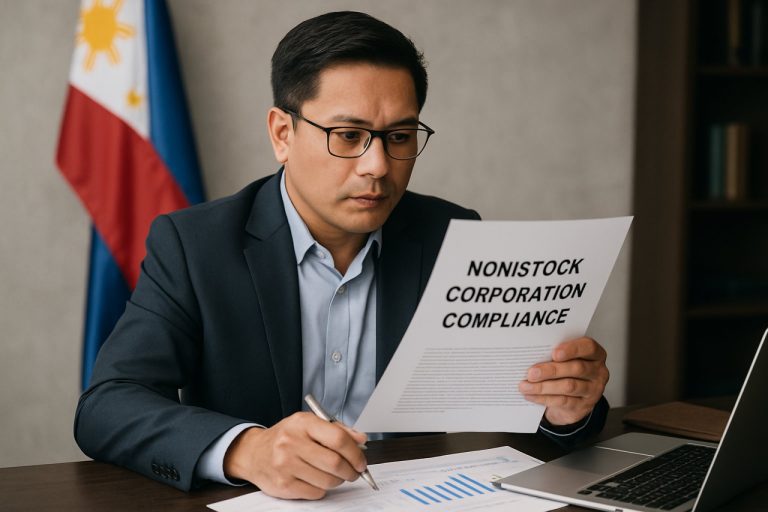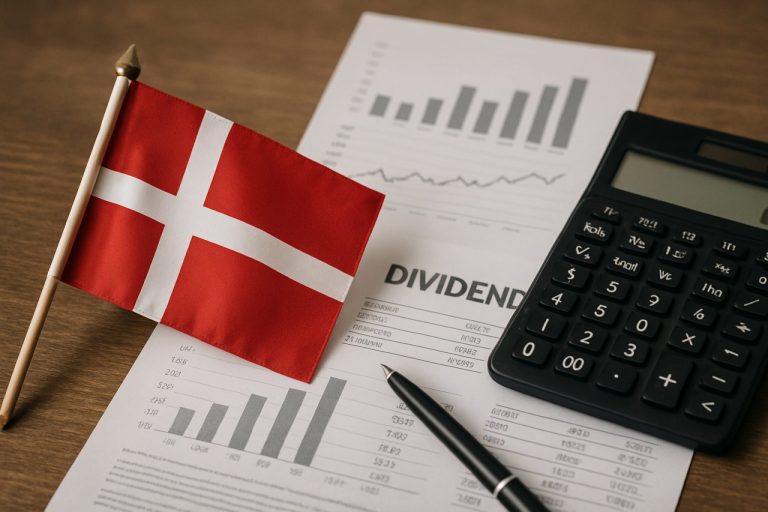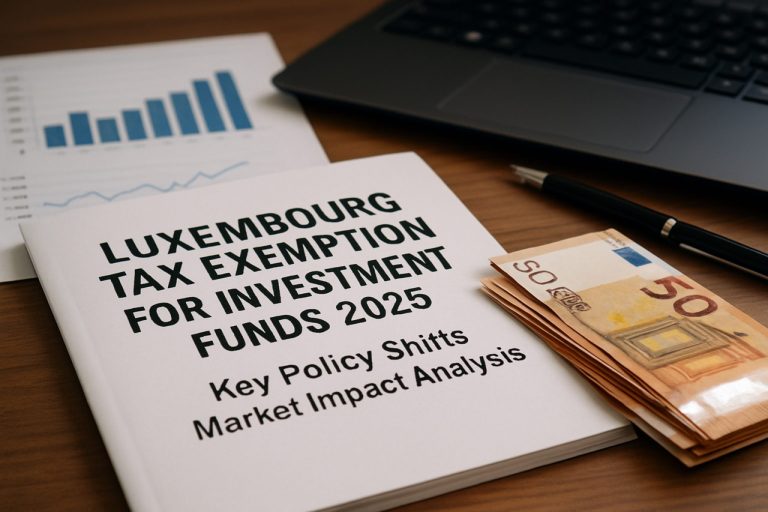
Table of Contents
- Executive Summary: Key Changes in Syrian Business Law for 2025
- Regulatory Landscape: Ministries, Courts, and Enforcement Bodies
- Company Formation and Registration: Legal Steps and Recent Reforms
- Taxation and Financial Compliance: 2025 Updates and Obligations
- Foreign Investment Laws: Opportunities, Restrictions, and Protections
- Labor Law: Employee Rights, Contracts, and Compliance in 2025
- Intellectual Property and Trade Regulations
- Dispute Resolution: Courts, Arbitration, and Government Mediation
- Key Statistics: Business Growth, Legal Cases, and Compliance Rates
- Future Outlook: Anticipated Legal Reforms and Strategic Guidance (2025–2030)
- Sources & References
Executive Summary: Key Changes in Syrian Business Law for 2025
Business law in Syria continues to evolve amid ongoing economic recovery efforts and regulatory reforms designed to attract investment and stabilize commercial activity. For 2025, several key legal changes and strategic initiatives are shaping the business environment, with impacts on company formation, foreign investment, compliance, and dispute resolution.
- Company Law Reforms: The Syrian government has amended aspects of the Commercial Companies Law (Law No. 29 of 2011), aiming to simplify registration processes and enhance protections for minority shareholders. Notable provisions include streamlined online company registration and clearer capital requirements for joint stock and limited liability companies. The Ministry of Internal Trade and Consumer Protection continues to oversee company registry modernization, emphasizing digitalization and reducing bureaucratic barriers (Ministry of Internal Trade and Consumer Protection).
- Foreign Investment Incentives: The updated Investment Law No. 18 of 2021 remains central to Syria’s economic strategy, offering tax exemptions and guarantees against expropriation to foreign investors. Recent executive instructions have clarified sectoral eligibility and expanded incentives for renewable energy and manufacturing projects. The Syrian Investment Agency reports a 14% increase in registered foreign investment projects in the first quarter of 2024, with continued growth expected as regulatory certainty improves (Syrian Investment Agency).
- Anti-Money Laundering (AML) and Compliance: Compliance requirements have tightened, particularly for financial institutions and companies engaged in cross-border transactions. In 2024, the Central Bank of Syria issued new AML guidelines aligning with international standards, including mandatory customer due diligence and reporting obligations. Businesses are now required to implement robust internal controls to avoid penalties and reputational risks (Central Bank of Syria).
- Dispute Resolution: The judiciary has introduced specialized commercial courts in key governorates, aiming to expedite dispute resolution and improve contract enforcement. According to the Ministry of Justice, average case resolution times have decreased by 18% compared to 2022, reflecting ongoing judicial reforms (Ministry of Justice).
Looking ahead, Syria’s business law framework in 2025 is expected to further embrace digital transformation, transparency, and investor protections. While challenges remain due to the broader economic climate, ongoing reforms signal a cautious optimism for both domestic and foreign enterprises seeking to operate in the Syrian market.
Regulatory Landscape: Ministries, Courts, and Enforcement Bodies
The regulatory landscape for business law in Syria in 2025 continues to be characterized by a centralized legal framework shaped by the country’s evolving political and economic environment. The principal authorities responsible for the formulation, implementation, and enforcement of business legislation include ministries, specialized courts, and various regulatory agencies.
The Ministry of Justice oversees the judicial system, including commercial and administrative courts, ensuring the application and interpretation of business law. Commercial disputes, bankruptcy proceedings, and contractual disagreements are adjudicated primarily by specialized commercial courts within the judiciary, established to streamline business litigation and enforcement actions.
The Ministry of Communications and Technology and the Ministry of Interior play significant roles in regulating e-commerce, data security, and business licensing, especially as Syrian businesses increasingly adopt digital platforms. The Ministry of Economy and Foreign Trade is responsible for trade policy, company registration, and foreign investment regulations, working in coordination with the Central Bank of Syria on financial compliance, money laundering, and foreign exchange controls.
Syria’s regulatory framework for business registration and compliance is governed by key statutes including the Companies Law (amended in 2011 and periodically updated), which outlines the requirements for legal entities, shareholder rights, and corporate governance. The government has introduced incremental reforms to streamline procedures: as of 2024, the average time to register a company in Syria is estimated to be approximately 20 days, though this varies regionally (Ministry of Economy and Foreign Trade).
Enforcement mechanisms, while operational, are challenged by ongoing post-conflict reconstruction and international sanctions, which impact the pace and predictability of regulatory interventions. The Central Bank of Syria has intensified scrutiny of financial transactions to comply with anti-money laundering (AML) and counter-terrorism financing (CFT) regulations, in line with international expectations. Regulatory compliance remains a priority for both local and foreign businesses, with increased inspections and audits projected through 2025.
- Key regulators: Ministry of Justice, Ministry of Economy and Foreign Trade, Central Bank of Syria, Ministry of Interior, Ministry of Communications and Technology.
- Primary enforcement: Specialized commercial courts, administrative courts, regulatory agencies.
- Compliance focus: Company registration, AML/CFT, trade licensing, digital business regulation.
Looking ahead, the regulatory outlook suggests continued modernization of business law, enhancement of digital compliance infrastructure, and gradual alignment with regional legal standards to attract investment and rebuild the economy. However, ongoing geopolitical and economic pressures are expected to shape the pace and effectiveness of these reforms.
Company Formation and Registration: Legal Steps and Recent Reforms
Syria’s business environment has seen incremental legal reforms in company formation and registration over the past several years, aimed at revitalizing a war-impacted economy and attracting both local and foreign investment. As of 2025, the fundamental legal framework governing company establishment is set by the Syrian Companies Law (Law No. 29 of 2011), which provides for several types of business entities, including limited liability companies (LLCs), joint stock companies, and partnerships. The Ministry of Justice and Ministry of Communications and Technology oversee regulatory compliance, while the Ministry of Economy and Foreign Trade is responsible for licensing and monitoring foreign investments.
The process for company registration generally involves reserving a trade name, drafting and notarizing articles of association, depositing initial capital in a local bank, registering with the Commercial Registry, and obtaining commercial and municipal licenses. In 2023, the Syrian government introduced digital initiatives, such as partial online application submissions and electronic document tracking, to streamline procedures and reduce processing times. These measures are expected to become more comprehensive by 2025, with the Ministry of Communications and Technology piloting a centralized e-Government portal for business registration.
Recent reforms have focused on simplifying company formation, reducing bureaucratic barriers, and clarifying compliance requirements, particularly regarding anti-money laundering and tax registration. The 2022 amendments to the Investment Law (Law No. 18) granted new incentives for foreign investors, such as customs exemptions for machinery and the repatriation of profits, provided that the company is registered under Syrian law and operates in designated priority sectors (Syrian Investment Agency).
Despite these improvements, challenges remain. According to data from the Central Bureau of Statistics, the number of newly registered companies in 2024 increased by only 3.5% compared to the previous year, reflecting persistent administrative hurdles and the need for greater regulatory transparency. Compliance with local labor laws, taxation, and reporting remains a primary concern for investors.
Looking ahead, the outlook for company formation in Syria in 2025 and beyond will depend on the pace of digital transformation in government services, further legal harmonization with international business standards, and the stabilization of the broader economic environment. Ongoing legislative updates and greater transparency are expected to gradually improve the ease of doing business, but significant structural challenges must still be addressed for sustained growth.
Taxation and Financial Compliance: 2025 Updates and Obligations
In 2025, Syria’s taxation and financial compliance environment continues to evolve amid ongoing economic and regulatory reforms. The government has prioritized expanding the tax base and enhancing compliance mechanisms to increase state revenues and support post-conflict reconstruction. Businesses operating in Syria must navigate a tax system that includes corporate income tax, value-added tax (VAT), and various local levies, with heightened scrutiny from authorities.
Corporate Taxation Framework
The corporate income tax rate in Syria remains generally set at 22%, although this may vary for specific sectors such as oil, banking, and insurance, which are subject to distinct rates and exemptions. Notably, the Ministry of Finance has increased oversight of transfer pricing practices and cross-border transactions to prevent tax evasion, requiring documentation that substantiates the arm’s length nature of such dealings.
Value-Added Tax (VAT) and Indirect Taxes
The VAT regime, implemented under Law No. 61 of 2004, applies a standard rate of 18% to most goods and services, with certain essential items remaining exempt. In 2025, the tax authority is intensifying digital monitoring of VAT compliance and has mandated electronic invoicing for medium and large enterprises. The General Commission for Taxes and Fees has launched online portals for returns submission and real-time verification, aiming to reduce tax evasion and administrative delays.
Financial Reporting and Auditing Duties
All companies registered in Syria are required to maintain accurate financial records and submit annual audited financial statements. Auditing standards are based on Syrian GAAP, with gradual steps towards alignment with international standards. The Syrian Association of Certified Public Accountants plays a key role in overseeing audit quality and professional conduct.
- In 2024, tax revenue collection reached an estimated SYP 2.3 trillion, a 15% increase over the previous year, driven by enhanced enforcement (Ministry of Finance).
- More than 60% of medium-to-large businesses have transitioned to electronic tax filing systems as of early 2025 (General Commission for Taxes and Fees).
Outlook and Compliance Challenges
Looking forward, Syria’s tax authority is expected to further digitalize compliance processes, expand taxpayer education, and strengthen anti-avoidance measures. However, complex geopolitical factors and foreign exchange restrictions continue to pose operational and compliance challenges. Businesses must remain vigilant to evolving legal obligations, especially regarding electronic reporting, anti-money laundering requirements, and timely tax payment, to avoid penalties and maintain good standing.
Foreign Investment Laws: Opportunities, Restrictions, and Protections
In 2025, Syria’s foreign investment legal framework continues to be shaped by both longstanding statutes and recent amendments aimed at post-conflict reconstruction and economic revitalization. The principal legislative instrument is Investment Law No. 18 of 2021, which replaced earlier laws to create a more attractive environment for foreign capital. This law grants foreign investors the right to establish and wholly own businesses in most sectors, secure equal treatment to domestic investors, and repatriate profits and capital, subject to compliance with Syrian regulations. The law also provides a range of tax and customs exemptions for approved investment projects, particularly in sectors identified as priorities for reconstruction, such as manufacturing, agriculture, tourism, and infrastructure development (Syrian Investment Agency).
However, foreign investment remains subject to several restrictions and compliance obligations. Certain sectors—including arms production, security services, and, to a limited extent, energy resources—are either closed or require special government approval. Additionally, investors must navigate rigorous licensing, registration, and due diligence processes overseen by the Syrian Investment Agency and sectoral ministries. The ongoing sanctions regime, particularly from the European Union and the United States, complicates access to international financial systems and technology transfers, creating indirect barriers even where Syrian law is permissive (Central Bank of Syria).
Protection of foreign investments is anchored in the law’s provisions for dispute resolution and guarantees against expropriation without fair compensation. Syria is party to several bilateral investment treaties (BITs), mainly with neighboring and friendly countries, and offers recourse to both domestic courts and, in some cases, international arbitration. Nonetheless, the effectiveness of these protections is a concern; while the law stipulates fair treatment, Syria is not a member of the International Centre for Settlement of Investment Disputes (ICSID), and local judicial independence has faced criticism. The country’s 2025 Doing Business indicators remain below regional averages in areas such as contract enforcement and property registration (Ministry of Justice).
- According to the Syrian Investment Agency, foreign direct investment (FDI) inflows have shown modest but steady recovery since 2022, with a focus on infrastructure and manufacturing projects.
- Compliance risks persist due to ongoing geopolitical instability and international sanctions, necessitating thorough due diligence for foreign entrants.
Looking ahead, Syria’s outlook for foreign investment is cautiously optimistic, contingent on further stabilization, legal reforms to enhance investor protections, and the gradual easing of sanctions. Continued modernization of business laws and improvement in judicial and administrative processes will be critical to attracting more diverse and sustainable foreign capital in the next several years.
Labor Law: Employee Rights, Contracts, and Compliance in 2025
Syrian labor law in 2025 continues to be governed primarily by the Labor Law No. 17 of 2010 and its subsequent amendments. This legal framework regulates employment contracts, workers’ rights, and employer obligations, covering both the private and public sectors. Despite persistent economic and political challenges, the Syrian government has undertaken several steps to modernize and enforce labor regulations to align with international standards and promote economic recovery.
Employment contracts in Syria must be drafted in Arabic and specify essential terms such as job description, salary, working hours, probation periods, and termination clauses. Fixed-term and indefinite contracts are permitted, but oral agreements are discouraged due to enforcement difficulties. The law mandates a maximum of 8 working hours per day (48 hours per week), with overtime compensation required for additional hours. Paid annual leave is set at 14 days, increasing with length of service, and female employees are entitled to 120 days of maternity leave under current regulations (Ministry of Social Affairs and Labor).
Employee rights are safeguarded by strict non-discrimination provisions and safety regulations. Employers must provide a safe working environment and adhere to occupational safety standards, with the Ministry of Social Affairs and Labor conducting periodic inspections. Social security contributions are mandatory for both employers and employees, covering pensions, workplace injury, and health benefits through the General Organization for Social Insurance (General Organization for Social Insurance). Non-compliance can result in significant penalties, including fines and business license revocation.
Recent government efforts focus on strengthening enforcement mechanisms and digitalizing labor dispute processes. In 2024, amendments streamlined labor dispute resolution procedures, reducing the average case duration from 12 to 8 months, according to official statistics from the Ministry of Justice. The government has also prioritized worker protection in sectors critical to reconstruction, such as construction and manufacturing, which accounted for over 40% of labor complaints filed in 2024.
Looking ahead, the labor law landscape in Syria is poised for gradual modernization, with anticipated reforms targeting greater flexibility in employment arrangements, expanded social protection, and enhanced compliance monitoring. The ongoing economic recovery and international engagement are likely to influence further legislative updates, aiming to create a more attractive environment for both domestic and foreign investment.
Intellectual Property and Trade Regulations
Syria’s framework for intellectual property (IP) and trade regulations is shaped by both domestic legislation and the country’s evolving participation in international treaties. As of 2025, IP protection in Syria is primarily governed by Law No. 8 of 2007 on Copyright and Related Rights, and Law No. 8 of 2007 for the Protection of Trademarks, Geographical Indications, Industrial Designs, and Models. Enforcement and administration of these laws fall under the purview of the Ministry of Internal Trade and Consumer Protection and the Ministry of Justice. Syria is a member of the World Intellectual Property Organization (WIPO) and party to several key treaties, including the Paris Convention for the Protection of Industrial Property and the Berne Convention for the Protection of Literary and Artistic Works, but it remains outside the Madrid Protocol for international trademark registration.
Despite these formal structures, enforcement of IP rights remains a challenge. The ongoing impact of conflict and economic instability has led to resource constraints and administrative bottlenecks within the Ministry of Internal Trade and Consumer Protection, which oversees trademark and patent registration and dispute resolution. Counterfeiting and piracy rates are considered high, particularly in the pharmaceutical, consumer goods, and media sectors. The Directorate General of Syrian Customs collaborates on border enforcement, but porous borders and limited capacity hinder effective IP protection.
On trade regulations, Syria continues to operate under the provisions of the 2007 Foreign Trade Law and a series of decrees aimed at controlling imports, exports, and foreign exchange. In 2024–2025, regulatory priorities have focused on import licensing, customs valuation, and tighter controls on goods entering the country, reflecting broader economic and security concerns. Syria is not a member of the World Trade Organization (WTO), which limits its integration into global trade frameworks and subjects businesses to non-standardized tariffs and procedures. The Central Bank of Syria oversees foreign exchange controls, with ongoing restrictions that impact cross-border business transactions.
Compliance remains a complex issue for both local and foreign businesses, given evolving regulations and frequent ad hoc decrees. Key statistics from the Ministry of Internal Trade and Consumer Protection indicate that trademark and patent filings have stagnated since 2020, with only modest annual increases—reflecting both economic challenges and a cautious business climate. Looking ahead, the outlook for business law in Syria’s IP and trade domains will depend on political stabilization, administrative reform, and improved engagement with international legal norms.
Dispute Resolution: Courts, Arbitration, and Government Mediation
Dispute resolution in Syria’s business environment is shaped by a combination of judicial court processes, arbitration mechanisms, and government-mediated efforts, each adapting to the country’s evolving legal and economic landscape in 2025. Syrian business law is governed primarily by the Civil Procedure Law No. 1 of 2016, which sets out the framework for civil and commercial litigation, and by the Arbitration Law No. 4 of 2008, regulating alternative dispute resolution. These legal frameworks have recently been under increased scrutiny as Syria seeks to attract investment and rebuild economic confidence post-conflict.
The civil courts remain the primary venue for commercial dispute resolution. Commercial cases are generally heard in the First Instance Courts, with appeals proceeding to the Courts of Appeal and ultimately, if necessary, to the Court of Cassation. The judiciary has taken steps to improve efficiency and transparency, including efforts to digitize filings and case management, though practical challenges persist due to infrastructural and resource limitations. According to a recent report by the Syrian Ministry of Justice, the average duration for resolving commercial disputes in the court system was approximately 18 months in 2024, with ongoing initiatives aimed at reducing this timeframe in 2025.
Arbitration is increasingly favored for business disputes, especially those involving foreign investors or complex contractual arrangements. The Arbitration Law of 2008 allows both institutional and ad hoc arbitration, and Syrian courts generally recognize and enforce arbitral awards, provided public policy is not contravened. The Damascus Chamber of Commerce and the Syrian Center for International Arbitration play important roles in administering arbitral proceedings. Recent years have seen a steady rise in arbitration cases, with the number of registered proceedings increasing by 17% from 2022 to 2024, reflecting growing business community confidence in alternative dispute mechanisms.
Government mediation has also been emphasized as a tool for dispute resolution, particularly for small and medium enterprises. The Ministry of Economy and Foreign Trade has established mediation panels tasked with resolving trade and contractual disputes before escalation to litigation or arbitration. These panels aim to expedite settlements and reduce case backlogs in the courts. In 2024, the Ministry reported that these panels resolved over 1,200 disputes, with a settlement rate exceeding 60% (Ministry of Economy and Foreign Trade).
Looking to 2025 and beyond, ongoing legal reforms, digitalization of court procedures, and increased reliance on arbitration and mediation are expected to further streamline dispute resolution. However, challenges remain regarding enforcement of judgments and awards amid broader economic and regulatory uncertainties. Continued government focus on judicial reform and alternative dispute resolution is anticipated to enhance investor confidence and business stability in Syria’s post-conflict recovery phase.
Key Statistics: Business Growth, Legal Cases, and Compliance Rates
The Syrian business environment in 2025 reflects both the legacy of protracted conflict and ongoing efforts toward economic stabilization. The government continues to update its legal and regulatory framework to attract investment and facilitate economic recovery, but challenges remain regarding compliance and the capacity of legal institutions.
- Business Registration and Growth: According to the Ministry of Communications and Technology, the number of newly registered businesses reached approximately 8,200 in 2024, marking a modest 6.5% increase compared to the previous year. The majority of new registrations are in the trade and service sectors, with a notable rise in small and medium-sized enterprises (SMEs).
- Legal Cases and Commercial Disputes: The Ministry of Justice reports that Syrian commercial courts handled over 3,100 business-related cases in 2024. Most disputes revolve around contract enforcement, property rights, and debt recovery. Approximately 41% of these cases were resolved within one year, reflecting gradual improvements in judicial efficiency. However, the backlog of unresolved cases remains significant.
- Compliance Rates: The Syrian Investment Agency indicates that compliance with core business laws—such as licensing, tax registration, and labor regulations—has reached 74% among registered companies. This represents an incremental improvement, attributed to streamlined electronic filing systems and periodic compliance audits by relevant ministries.
- Foreign Investment and Licensing: Official data from the Syrian Investment Agency show that 92 new foreign investment licenses were issued in 2024, primarily in manufacturing, agriculture, and information technology. Nonetheless, foreign direct investment (FDI) remains constrained due to ongoing geopolitical risks and sanctions.
- Regulatory Reform and Outlook: Recent amendments to the Commercial Companies Law and the launch of the online business registration portal aim to further enhance transparency and reduce procedural delays. The government is expected to focus on digitalization and anti-corruption measures through 2025 and beyond, targeting higher compliance rates and swifter legal resolution of business disputes.
While Syria’s business law landscape is evolving, sustained improvements in compliance, dispute resolution, and regulatory clarity will be essential for fostering business growth and attracting investment in the coming years.
Future Outlook: Anticipated Legal Reforms and Strategic Guidance (2025–2030)
Looking ahead to 2025 and beyond, Syria’s business law landscape is poised for gradual transformation, shaped by ongoing reconstruction efforts, regional normalization, and pressure for economic modernization. The government has signaled intentions to overhaul key commercial regulations to attract foreign investment and facilitate private sector growth, although progress remains incremental due to the country’s complex political and economic situation.
Several anticipated legal reforms are under consideration. Notably, the Ministry of Economy and Foreign Trade has proposed updates to the Commercial Companies Law to simplify company registration and improve shareholder protections. Draft amendments seek to streamline procedures for both domestic and foreign investors, modernize corporate governance standards, and clarify liquidation and insolvency processes. Additionally, there is discussion around revising the Central Bank of Syria’s foreign exchange controls to facilitate cross-border transactions and repatriation of profits, a critical issue for multinational enterprises.
The Syrian government is also prioritizing the modernization of contract law and commercial dispute resolution mechanisms. The Ministry of Justice has indicated plans to enhance the efficiency of commercial courts and introduce alternative dispute resolution (ADR) frameworks, such as arbitration and mediation, to reduce case backlogs and align with international business norms (Ministry of Justice). This is expected to increase legal certainty for investors and encourage more robust commercial activity.
Compliance and anti-corruption measures are likely to feature prominently in the reform agenda. In response to international expectations and Syria’s commitments under various regional cooperation agreements, there is growing emphasis on anti-money laundering (AML) frameworks, transparency in public procurement, and strengthening the legal framework against illicit financial activities. The Central Bank of Syria continues to issue updated directives related to customer due diligence and reporting obligations for financial institutions.
Key statistics illustrate the urgency of reform: private sector contributions to GDP remain below pre-crisis levels, and foreign direct investment inflows have stagnated since 2011 (Central Bureau of Statistics). Business registration, licensing, and operational compliance remain burdensome, discouraging new market entrants.
From 2025 to 2030, businesses operating in Syria should anticipate a cautious yet steady evolution of the legal environment. Strategic guidance includes close monitoring of legislative developments, proactive engagement with regulatory authorities, and early adoption of enhanced compliance protocols. Companies should also prepare for a gradual alignment of Syrian business law with international standards, particularly in areas of corporate governance, dispute resolution, and financial transparency. Legal counsel with local expertise will be essential for navigating ongoing changes and mitigating associated risks.



